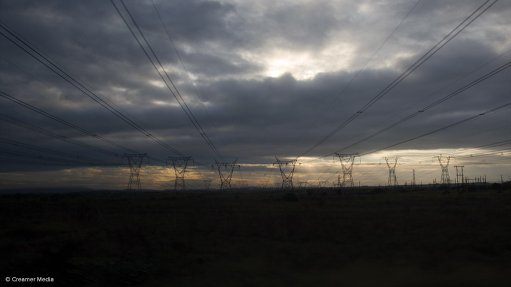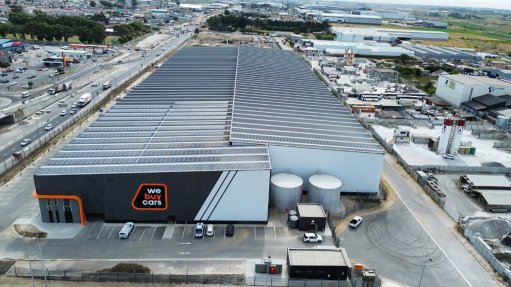Practical means to preserve valves
Ball, gate, globe, butterfly and check valves, as well as valve assemblies, are all common and critical components in the oil and gas industry.
Their job of regulating hazardous fluid flow in pipelines and piping systems underscores the importance of keeping them in peak operating condition, says corrosion control technologies provider Cortec Corporation.
Unfortunately, one of the most common “enemies” of valve integrity is rust, which can attack and deteriorate valves during hydrotesting, shipping and layup.
Cortec Corporation has, therefore, provided a list of tips to “make it easy to achieve successful preservation during the three main phases of a valve’s nonoperational life cycle”.
Phase 1 – Preserving Valves
Before a pipeline or plant starts operating, thousands of components must be fabricated, assembled, and shipped to the construction site.
Valves must be hydrostatically tested by the valve manufacturer to ensure that there are no leaks. Hydrotesting of valves and components may also be done at coastal fabrication yards where components are assembled into modules and often shipped halfway around the world.
Adding VpCI-649 to the hydrotest water does dual duty by protecting against flash rust from the hydrotest water and leaving behind a thin film of corrosion inhibitors that provide both contact and vapour-phase protection, says Cortec Corporation.
This offers comprehensive coverage that is typically difficult to achieve, owing to valve intricacies. A higher dose can be used for an extended period of preservation.
Another approach is to fog valve internals with CorroLogic VpCI -339 Fogging Fluid, a 100% vapour-phase inhibitor for void space protection.
The company suggests that, after internal protection, the entire valve can be enclosed in VpCI Film – available in multiple grades for different atmospheric exposure conditions – to keep the vapour-phase corrosion inhibitors from escaping and to protect the external surface without cumbersome coating or liquid rust preventive application.
The valve is then ready to be shipped through all sorts of environments and arrive in “like-new condition” at the installation site.
Phase 2 – Preserving Valves for Backup
Another critical phase of valve preservation ought to occur during warehousing of critical or operational spares.
Protection methods are similar to those previously mentioned, with slightly different underlying reasons.
For operational plants, preserving spare valves can mean the difference between millions of dollars saved, or millions lost for lack of a reliable spare to install when needed.
If all spares are rusty, as often happens in nonclimate-controlled warehouses or outdoor storage yards, maintenance personnel must either
instal a rusty, potentially faulty valve that could lead to further failure and disaster, or wait and experience downtimeun until a replacement arrives.
“A much easier path is to clean, protect and preserve valves in advance with three steps,” adds Cortec.
The first step is to remove any existing rust, which can be done by using a dip bath of VpCI-422, followed by rinsing and neutralisation with a VpCI-41x series cleaner.
The second step is to use fog valve internals with VpCI-337 or CorroLogic VpCI-339 Fogging Fluid.
The third involves covering openings. Alternatively, the entire valve can be wrapped in VpCI-126 Film for indoor storage, VpCI-126 HP UV Shrink Film for outdoor storage, or MilCorr VpCI Shrink Film, also for outdoor storage, depending on the severity of the environment.
This procedure leaves valves in operating condition, ready to use at a moment’s notice as soon as they are unwrapped.
Phase 3 – Preserving Valves for a Brighter Day
A third, important phase of valve preservation comes when the fluctuating oil and gas market makes mothballing and layup the most cost-effective option, shutting down drilling or refining operations until there is a “brighter industry outlook”.
In the meantime, millions of dollars of equipment must be preserved so that their value is not lost during the idle period. Once again, valves fall into this category, Cortec points out.
They can be preserved in much the same way as described for other phases .
When the market brightens, crews can easily remove the VpCI films, and get the facility up and running.
“Whatever the stage, valves are such a critical part of the oil and gas industry that they deserve special preservation attention for economic and safety reasons.”
Article Enquiry
Email Article
Save Article
Feedback
To advertise email advertising@creamermedia.co.za or click here
Comments
Press Office
Announcements
What's On
Subscribe to improve your user experience...
Option 1 (equivalent of R125 a month):
Receive a weekly copy of Creamer Media's Engineering News & Mining Weekly magazine
(print copy for those in South Africa and e-magazine for those outside of South Africa)
Receive daily email newsletters
Access to full search results
Access archive of magazine back copies
Access to Projects in Progress
Access to ONE Research Report of your choice in PDF format
Option 2 (equivalent of R375 a month):
All benefits from Option 1
PLUS
Access to Creamer Media's Research Channel Africa for ALL Research Reports, in PDF format, on various industrial and mining sectors
including Electricity; Water; Energy Transition; Hydrogen; Roads, Rail and Ports; Coal; Gold; Platinum; Battery Metals; etc.
Already a subscriber?
Forgotten your password?
Receive weekly copy of Creamer Media's Engineering News & Mining Weekly magazine (print copy for those in South Africa and e-magazine for those outside of South Africa)
➕
Recieve daily email newsletters
➕
Access to full search results
➕
Access archive of magazine back copies
➕
Access to Projects in Progress
➕
Access to ONE Research Report of your choice in PDF format
RESEARCH CHANNEL AFRICA
R4500 (equivalent of R375 a month)
SUBSCRIBEAll benefits from Option 1
➕
Access to Creamer Media's Research Channel Africa for ALL Research Reports on various industrial and mining sectors, in PDF format, including on:
Electricity
➕
Water
➕
Energy Transition
➕
Hydrogen
➕
Roads, Rail and Ports
➕
Coal
➕
Gold
➕
Platinum
➕
Battery Metals
➕
etc.
Receive all benefits from Option 1 or Option 2 delivered to numerous people at your company
➕
Multiple User names and Passwords for simultaneous log-ins
➕
Intranet integration access to all in your organisation


















